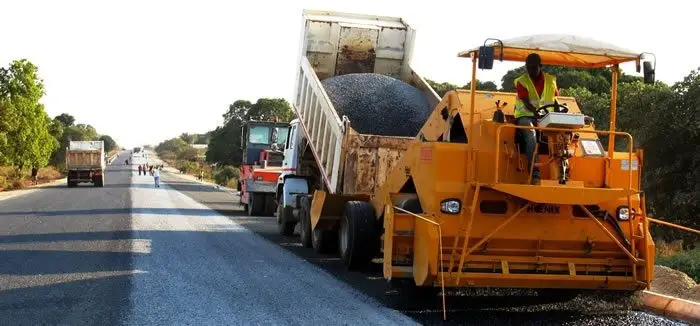Construction of the 530 km Lamu-Isiolo road is set to kick off this August 2018 after the government secured US $616.6m funding, a move that will open up the formally marginalized northern frontier counties and boost trade between Kenya and neighboring Ethiopia and South Sudan.The Development Bank of South Africa is funding the 4 year project.
Speaking during a tour of the Lamu Port South Sudan Ethiopia Transport (Lapsset) project site in Kililana, Lapsset Corridor Development Authority Chairman Francis Muthaura said the design of the road was complete and work would start soon.
Work on the Lamu-Isiolo section was slated to start in June but was delayed by late release of funds. Lamu Road Construction will operate and maintain the road for an initial 25 years. The firm is expected to ensure high performance standards to enhance transit transport and reduce vehicle operating costs.
The project is meant to improve transport of goods and people between Kenya, South Sudan, Ethiopia and Uganda. Mr Muthaura said that the design of the Isiolo to Lokichar road had faced some challenges due to heavy rain and that measures had been put in place for the activity to resume. Building of the Lokichar-Nakodok road had started, he said.
The government has embarked on activities to make Lamu port one of the most efficient in the world. According to Mr Muthaura, the establishment of Lamu Port City will provide Lapsset with strong structural support to enhance efficiency and growth to compete with other ports globally.
“Planning for the Lamu Port City is almost ready. We expect a city of about one million people. We will be doing the same in Garissa, Isiolo, Lodwar, Marsabit, Moyale and the borders to South Sudan and Ethiopia. All these projects will be done through the government and private partnerships,” said Mr Muthaura.
Completion of Lamu port will lead to creation of thousands of both direct and indirect jobs in fields such as agriculture, fishing, manufacturing, logistics, transport, trade and commerce.
The port is also expected to attract larger cargo ships. If run efficiently it will provide benefits by passing on savings derived from lower costs due to faster ship turnaround time and at the same time reduce the cost of doing business.
Lapsset chief executive Silvester Kasuku said the infrastructure links to neighbouring countries will foster trade and lead to regional economic development. Mr Kasuku said that development of resort cities in Lamu, Isiolo and Turkana is expected to increase international tourist arrivals as well as foreign exchange earnings.
Construction of the initial three berths at Lamu port, out of 32, is going on at Kililana with the first expected to be ready by December. The second and third berths are set to be completed by 2019 and 2020 respectively. The three facilities will cost US $477.4m.
Project facilities
“We expect the first ship to dock here by December once the berth is ready. Lamu has already seen an increase in population, especially due to migration by people from other parts of Kenya in quest for a share of trade, employment and business opportunities presented by infrastructure development in the county. The venture will pave way for exploitation of natural resources in this region.
“We are confident that once the port is operational it will attract cargo that passes through the ports of Sudan, Djibouti and Mombasa,” said Mr Kasuku.
Three years after building of Lamu port started, the project has attracted both local and international investors who are slowly turning the once humble town into one of East Africa’s largest port cities and transportation hubs. Cumulatively, Lapsset projects will cost US $24.9bn.

Leave a Reply